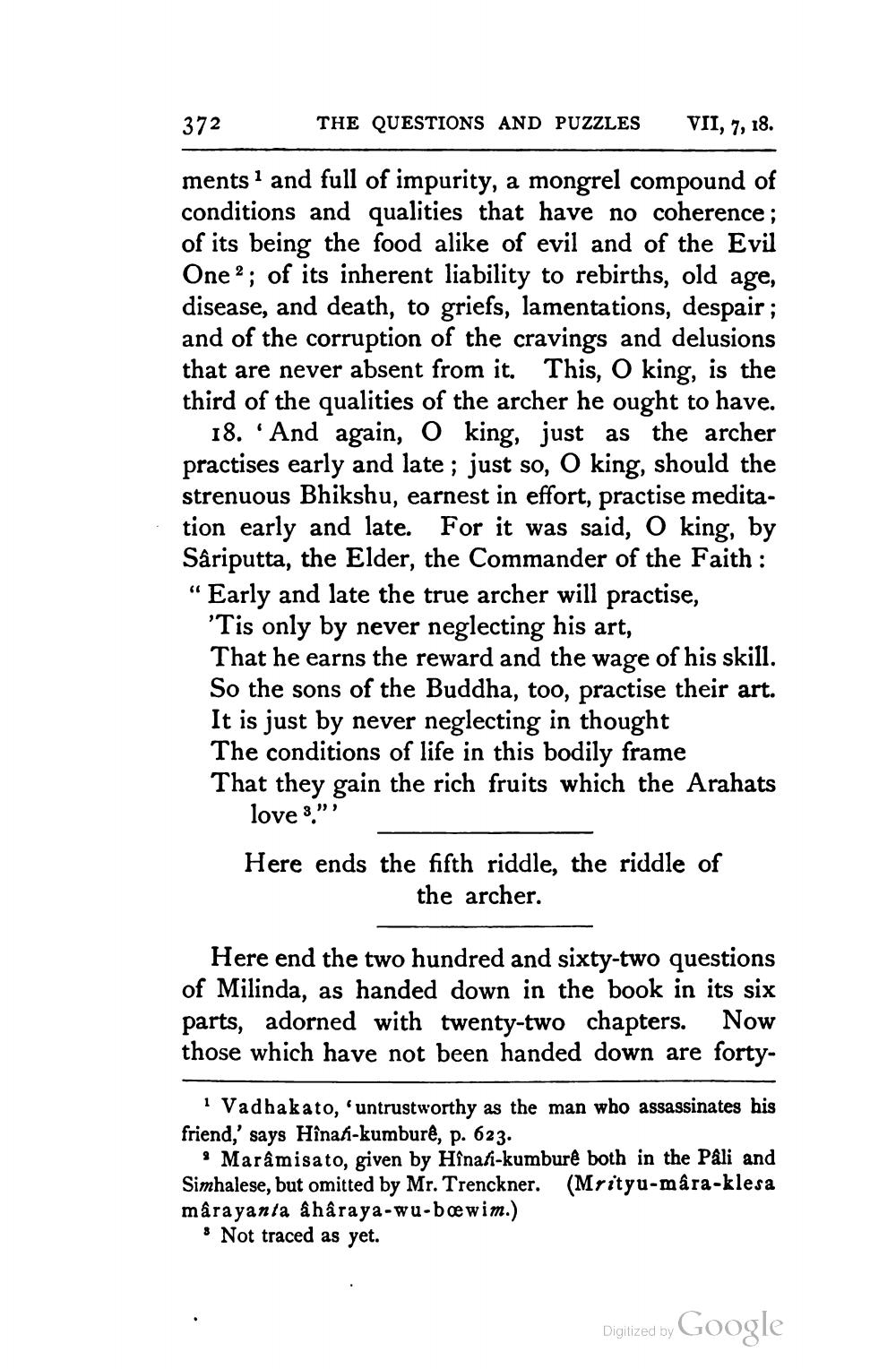________________
372
THE QUESTIONS AND PUZZLES
VII, 7, 18.
ments and full of impurity, a mongrel compound of conditions and qualities that have no coherence; of its being the food alike of evil and of the Evil One2; of its inherent liability to rebirths, old age, disease, and death, to griefs, lamentations, despair; and of the corruption of the cravings and delusions that are never absent from it. This, O king, is the third of the qualities of the archer he ought to have. 18. And again, O king, just as the archer practises early and late; just so, O king, should the strenuous Bhikshu, earnest in effort, practise meditation early and late. For it was said, O king, by Sâriputta, the Elder, the Commander of the Faith: "Early and late the true archer will practise, 'Tis only by never neglecting his art,
"
That he earns the reward and the wage of his skill. So the sons of the Buddha, too, practise their art. It is just by never neglecting in thought
The conditions of life in this bodily frame That they gain the rich fruits which the Arahats love 3."
Here ends the fifth riddle, the riddle of the archer.
Here end the two hundred and sixty-two questions of Milinda, as handed down in the book in its six parts, adorned with twenty-two chapters. Now those which have not been handed down are forty
1 Vadhakato, 'untrustworthy as the man who assassinates his friend,' says Hînati-kumburê, p. 623.
• Marâmisato, given by Hînafi-kumburê both in the Pâli and Simhalese, but omitted by Mr. Trenckner. mârayanta âhâraya-wu-bowim.)
(Mrityu-mâra-klesa
Not traced as yet.
Google
Digitized by




